There are many reasons to pursue a Ph.D. in Instrumentation &Control. This doctoral program enables students to specialize in this field and prepare for a variety of interdisciplinary careers. Graduates of this program have the ability to design and implement complex systems and apply advanced electrical and control concepts. The program is typically offered part-time or full-time. Both modes require regular coursework and participation.
Instrumentation and control is a highly specialized domain of electrical and electronic engineering. It provides undergraduates with technical expertise as well as practical skills. The Ph.D. course teaches all aspects of Instrumentation and Control, giving graduates an in-depth understanding of the field. After earning their degree, graduates can work in a wide range of fields, including equipment manufacturers, installation units, maintenance companies, and equipment designers.
The Ph.D. program requires that the student master a broad range of subject matter. The major focus of this program is the application of key concepts in the field of instrumentation. The program requires a thorough understanding of process principles and a strong grasp of mathematical concepts. In addition, students must be able to express their opinion about Process Instrumentation Technology. Finally, they must be able to analyze and evaluate the system and apply those findings.
Ph.D. in Instrumentation & Control Eligibility
Candidates who want to take admission in Ph.D. must have a post-graduate degree in Instrumentation & Control and its relevant discipline with at least 55% marks from a recognized university and must have passed the national level entrance examination or university level entrance examination. National level entrance exams like UGC NET / UGC CSIR NET / GATE / SLET or University entrance exam consisting of written tests and personal interviews.
The Benefits of a Ph.D. in Instrumentation and Control Engineering
Graduates of a Ph.D. program in instrumentation and control engineering are prepared to take courses in a range of interdisciplinary fields, including electrical and biomedical engineering. These programs emphasize fundamental concepts in control, instrumentation, and electrical systems. They also emphasize interdisciplinary collaboration and creative thinking. Students in these programs will have the opportunity to present research at national conferences and receive feedback from experts in their field. In addition, their dissertations will be published in prestigious journals and conference proceedings.
Graduates of this program will be able to enter a career in the field of mechanical engineering. Their degrees will help them develop a wide range of expertise in their field as well as in related areas. They are also expected to produce a doctoral dissertation, which is expected to be a significant original contribution to research. In most cases, doctoral students will publish these dissertations in archival journals. They will work under the supervision of a primary research advisor and an advisory committee. Ph.D. students develop the confidence and aptitude to produce new knowledge in academic and industrial settings.
Graduates of instrumentation and control engineering will be responsible for the design, installation, and management of equipment. Their work may involve developing and implementing controls and other devices to make sure that they function properly and safely. They may work for a manufacturing company or in the nuclear or oil and gas sector. They will have the opportunity to work in a variety of roles and will need to have the support of colleagues in different functions of an organization.
The Career and Job Opportunities of a Ph.D. in Instrumentation & Control
Upon graduation, a Ph.D. in Instrumentation & Control opens many possibilities. This course will prepare you for a variety of roles, from automation engineers to technical process controllers. Graduates will be in demand in manufacturing, consumer products, and chemical plants. They will also be well-versed in the theory behind the design of automated processes. A Ph.D. in Instrumentation 'graduate' can work in any area of the industry.
If you are interested, apply today! All applications are confidential. For more information, visit the website below. Once you have been accepted into the program, you'll be eligible to apply for a position with a reputable university.
One of the top-rated universities in the country, the University of Michigan, offers a funded Ph.D. position in the Department of Mechanical Engineering. The position focuses on the supervisory control design of cyber-physical systems. Candidates should have a master's degree in mechanical engineering or an engineering-related field.
The Future Scope of Ph.D. in Instrumentation & Control
The future scope of this degree is bright. The modern world demands technical experts in all sectors. These engineers work in research labs, industrial firms, and biomedical companies. They often require on-the-job training, which gives them an edge over others. In addition to specialized jobs in the engineering field, these professionals are in high demand in many sectors. This career path enables them to apply their scientific knowledge to a variety of fields.
A Ph.D. in Instrumentation &Control program can open doors in many industries. Middle Eastern Cities and MNCs are always on the lookout for talented IN engineers. The USA and Europe are also excellent options for graduates with this degree. In the future, qualified instrumentation engineers can find rewarding careers in automation, machinery, and control systems. The job market for engineers in this discipline is booming and the opportunities are endless.
Graduates with an Instrumentation & Control degree can enter a range of industries. As an electrical engineer, you may be working for a manufacturer of electrical equipment or a plant manager, or working outside the manufacturing sector as a chartered engineer. Either way, you'll need to understand the operational processes in an organization. This is a multi-faceted degree, which requires you to think critically and solve problems on a daily basis.
Ph.D. Research Programme duration
The Ph.D. in Instrumentation & Control course is a minimum of 3 years and a maximum of 5 duration. This depends on the university offering the course.
Fees for research program for Instrumentation & Control
The average fee for Ph.D. in Instrumentation & Control degree is between INR 50000 and INR 500000.
 5 Years
5 Years
 PhD
PhD
 Research
Research










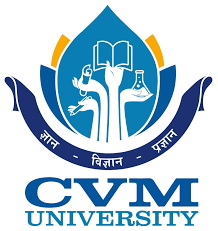
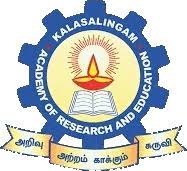

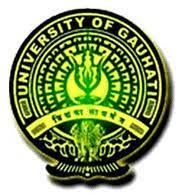
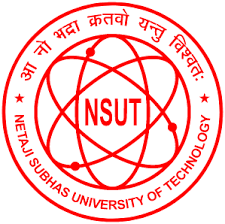
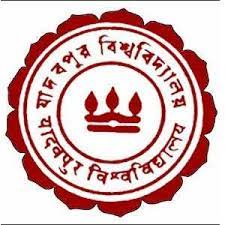


 back
back